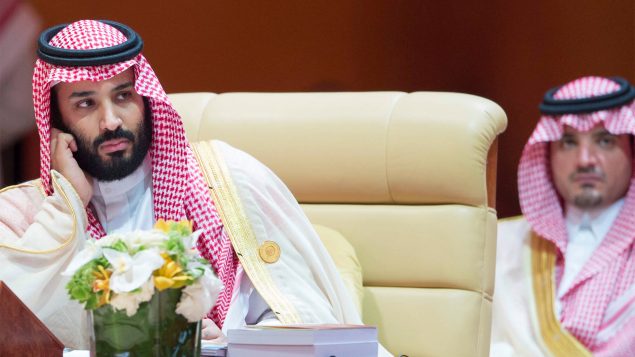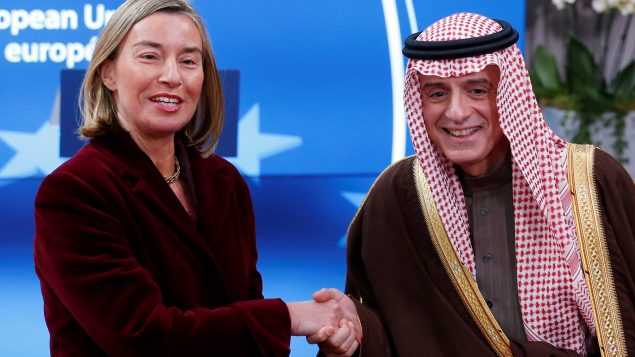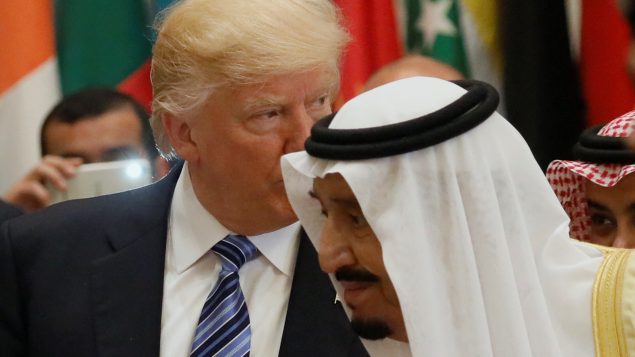
Ottawa has found itself alone in its escalating diplomatic row with Riyadh as Canada’s traditional allies seem prefer to stay out of the tiff between Canada and Saudi Arabia.
While Saudi Arabia has been getting messages of support from regional allies and even rivals like Russia, Canada’s Western allies – even those who had experienced similar Saudi outbursts in the past, such as Germany and Sweden – have decided to keep out of the latest dispute.
Saudi Arabia expelled Canada’s ambassador in Riyadh on Sunday over what officials called “blatant interference in the Kingdom’s domestic affairs,” after Foreign Affairs Minister Chrystia Freeland tweeted Thursday that Canada was “very alarmed” by the arrest of two additional women activists and urged Saudi authorities to release them.
Saudi Arabia also recalled its ambassador in Ottawa and halted all new investment and trade transactions with Canada, ordered nearly 15,000 Saudi students in Canada to transfer to other countries, and suspended flights to Canada.
Escalating sanctions against Canada

Saudi Arabia’s Crown Prince Mohammed bin Salman attends a meeting during the 29th Arab Summit in Dhahran, Saudi Arabia April 15, 2018. (Bandar Algaloud/Courtesy of Saudi Royal Court/Handout via REUTERS)
On Wednesday, Riyadh also ordered all Saudi patients undergoing treatment in Canada to be transferred to other countries, as well as halted purchases of Canadian barley and wheat.
Saudi Arabia’s Foreign Affairs Minister Adel al-Jubeir said Wednesday they are looking at implementing additional measures against Canada, amid reports that the kingdom’s central bank and large institutional investors have been ordered to sell off their Canadian assets.
Urging restraint
Through all this, Canada’s allies have remained mum or offered very cautious statements designed not to upset Riyadh.
Despite sharing Canada’s concerns over the treatment of Saudi women activists and the state of human right in the kingdom, European Union seems to be staying away from the political minefield the Ottawa-Riyadh row presents.
On Tuesday reporters in Brussels grilled Maja Kocinjancic, a spokesperson for the European External Action Service (EEAS), the EU’s diplomatic service, on the union’s position on the escalating crisis.

European Union foreign policy chief Federica Mogherini welcomes Saudi Arabia’s Foreign Minister Adel al-Jubeir ahead of a meeting to discuss the Middle East peace process, in Brussels, Belgium, February 26, 2018. (Francois Lenoir/REUTERS)
The EU has been seeking clarifications from the Saudi authorities on the circumstances around the arrests of women human rights defenders in Saudi Arabia since the first arrests in May, Kocinjancic told reporters.
“When it comes specifically to the relations between Canada and the Kingdom of Saudi Arabia, we have been following the developments in diplomatic relations between the two,” she said. “In line with diplomatic practice, we do not comment on bilateral relations.”
The U.K.’s Foreign and Commonwealth Office said that both Canada and Saudi Arabia “are close partners.”
“We urge restraint during the current situation,” the statement said.
‘Close allies’

U.S. President Donald Trump and Saudi Arabia’s King Salman bin Abdulaziz Al Saud (R) attend the Arab Islamic American Summit in Riyadh, Saudi Arabia May 21, 2017. (Jonathan Ernst/REUTERS)
Even the United States, Canada’s closest ally and partner, issued a very neutral statement, saying “Canada and Saudi Arabia are both close allies of the United States.”
Heather Nauert, a U.S. State Department spokeswoman, said Tuesday the U.S. is urging Canada and Saudi Arabia to use diplomacy to resolve their dispute.
“Both sides need to diplomatically resolve this together. We can’t do it for them, they need to resolve it together,” Nauert said in a briefing.
The fact that the U.S. chose to put Canada, with which it shares membership in NATO and the binational North American Aerospace Defence Command (NORAD), and Saudi Arabia on the same footing did not go unnoticed by experts.
“Canada has no backing at all from the U.S. in its current spat with Saudi,” Thomas Juneau, professor of political science at the University of Ottawa, tweeted Tuesday.
While the “spectacular” dispute between Ottawa and Riyadh is “ultimately not very important,” the U.S. reaction should give Canadian officials pause, he said.
“This should be a source of major anxiety: when a real crisis comes, and we are alone, what do we do,” Juneau tweeted.
Speaking to reporters in Montreal on Wednesday Trudeau sought to downplay the lack of support his government has received from Western allies.
“I’m never going to impose on another country what their reactions should be or what their response should be,” Trudeau said. “I respect the rights of individual countries to make their decisions and speak for themselves.”


